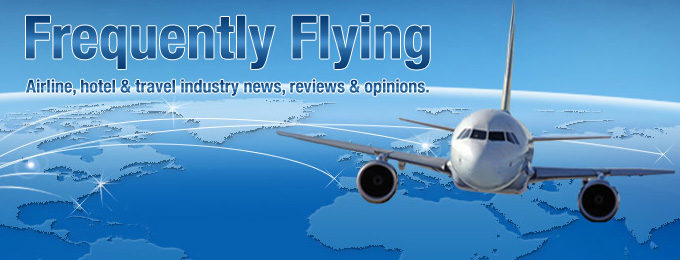Yesterday at the JP Morgan Aviation, Transportation & Defense Conference in New York, Jeff Smisek gave a presentation on the status of United Airlines, the merger with Continental, and the future of the industry. A lot of it was high-level CEO talking points about the carrier and the future, but he did reveal a couple of interesting tidbits during his speech and afterwards in the Q&A session. Matthew provides an excellent summary over at his blog, and includes links to the audio and presentation slides. In addition to his notes, here are a few of my own:
- Consolidation. Jeff began the talk speaking about the fragmentation of the industry & mentioned consolidation is good for the industry and hopes it will continue. I doubt that means more for United, though.
- Fuel Efficiency. Frequently throughout the talk he brought this up. The carrier today is 32% more fuel efficient on a RPM (revenue passenger mile) basis than in 1992. He also joked that the APU (auxiliary power unit used while the aircraft is at the gate and to start the engines) is “the world’s most expensive coffee maker.” Knowing how focused United was in 1993 when I interned in Flight Dispatch (EXODD), it’s amazing to hear a 32% increase in efficiency. Granted, a lot of the gas-guzzlers have since been retired from the fleet.
- Business Travelers. The slide showed 65% of the total revenue comes from business travelers, who represent probably around 40-45% of the total traffic. He also mentioned United has had tremendous success in getting corporate contracts due to their network, and that of Star Alliance. Back in 1993 I had a chance to sit in on a talk Stephen Wolf, United’s then CEO, gave to a group of pilots. At that time, I recall the figures being more in the neighborhood of 30% of the traffic generated 70% of the revenue.
- Frequent Flyer Program. He calls it spectacular and huge with more members than the citizens of France worldwide. The full 2012 program will be announced later this year, and did mention it will bring enormous value to customers, What that means remains to be seen, and he closed the topic by saying, “It’s not your grandfather’s frequent flyer program.”
- FareLock. Jeff mentioned the Continental Airlines FareLock service I blogged about previously has been a successful product. Not a huge revenue earner, but successful nonetheless. This leads me to believe it will continue at the new United.
- Technology. He admitted they’re not using the best technology platform out there for reservations and back-end processes, but they’re using the one that allows them to integrate both carriers with the least issues. He didn’t call it out by name here, but is referring to the SHARES reservations system as I also blogged about previously. After a successful integration, he then said they’d be looking at the best solution out there.
- Premium Service (p.s.) JFK-LAX/SFO. These high-yield markets with dedicated aircraft will receive “significant upgrade to the interiors,” including lie-flat seats. This has stirred a lot of speculation on the boards of FlyerTalk and MilePoint with regard to p.s. going to a two-cabin format, and a possible reduction in the amount of premium seats. Last November the SAG/AFTRA contract was revised restricting actors to flying only business class domestically (unless they have enough clout for first), so we might just see the Continental BusinessFirst model onboard the p.s. flights in the future. How many seats remains to be seen, but I would have to assume they’d dedicate more real estate to the premium cabin than the standard domestic 757 versions.
- Ancillary Fees. Jeff thinks unbundling is here to stay permanently, and United will continue to seek out ways to offer features and services with “great value and high margins.” Read that as you will, but he did at least go on record as saying United will never charge for onboard bathroom use or seatbelts!

